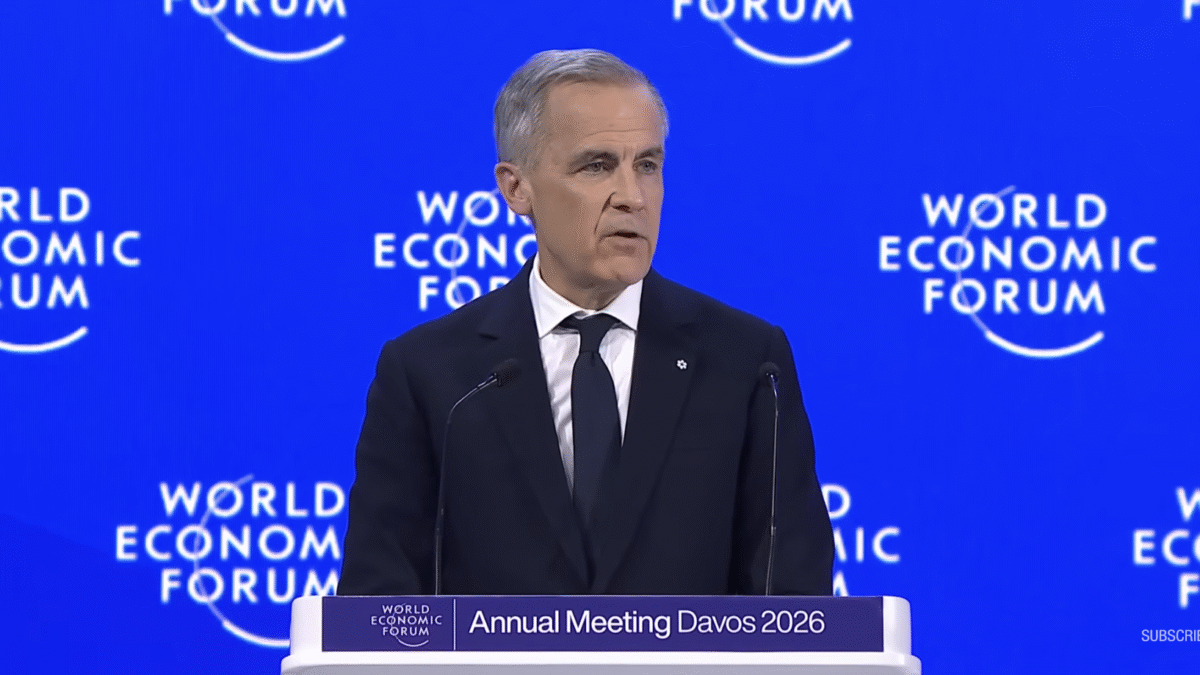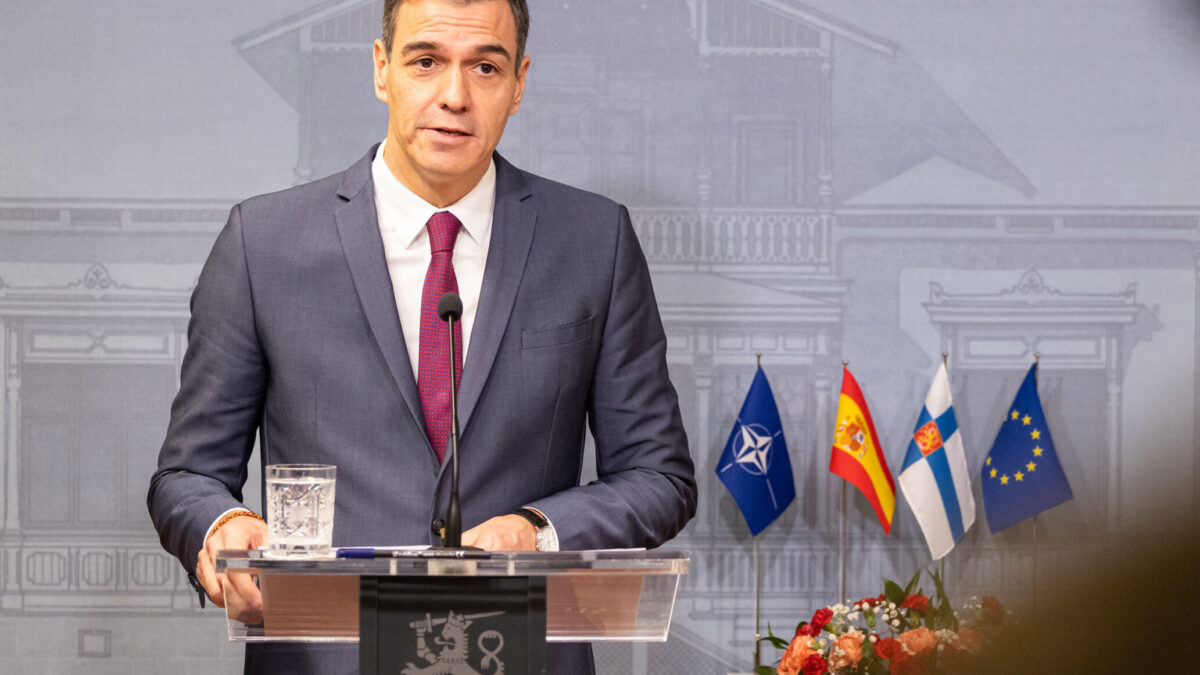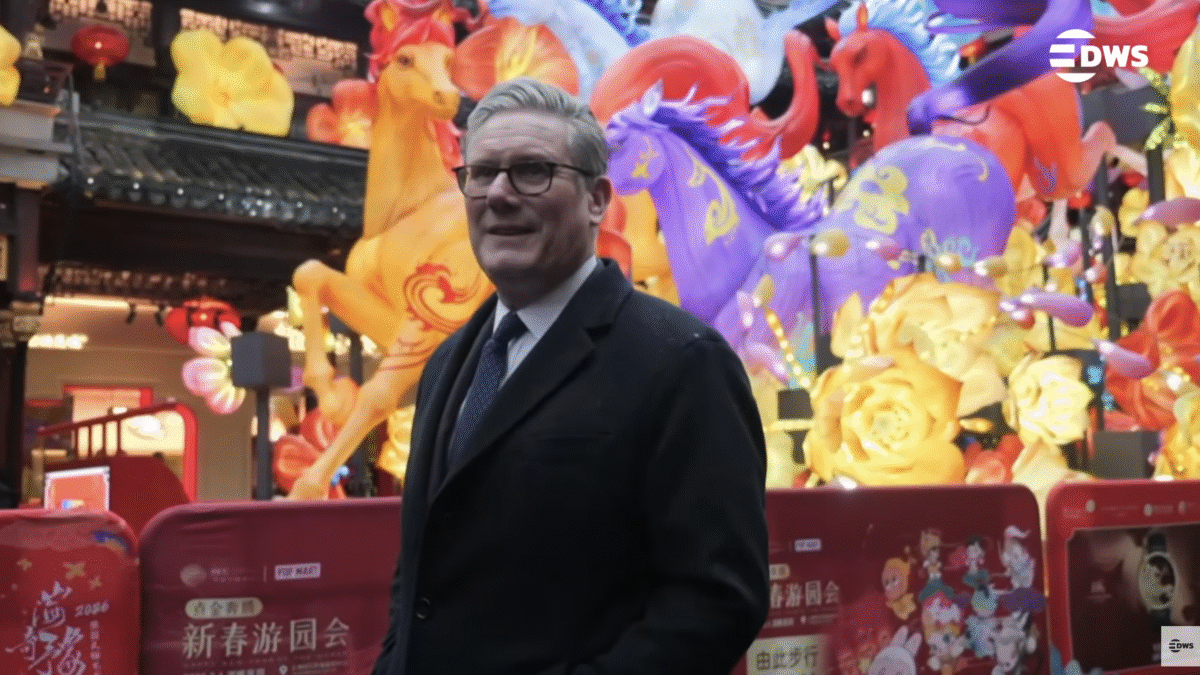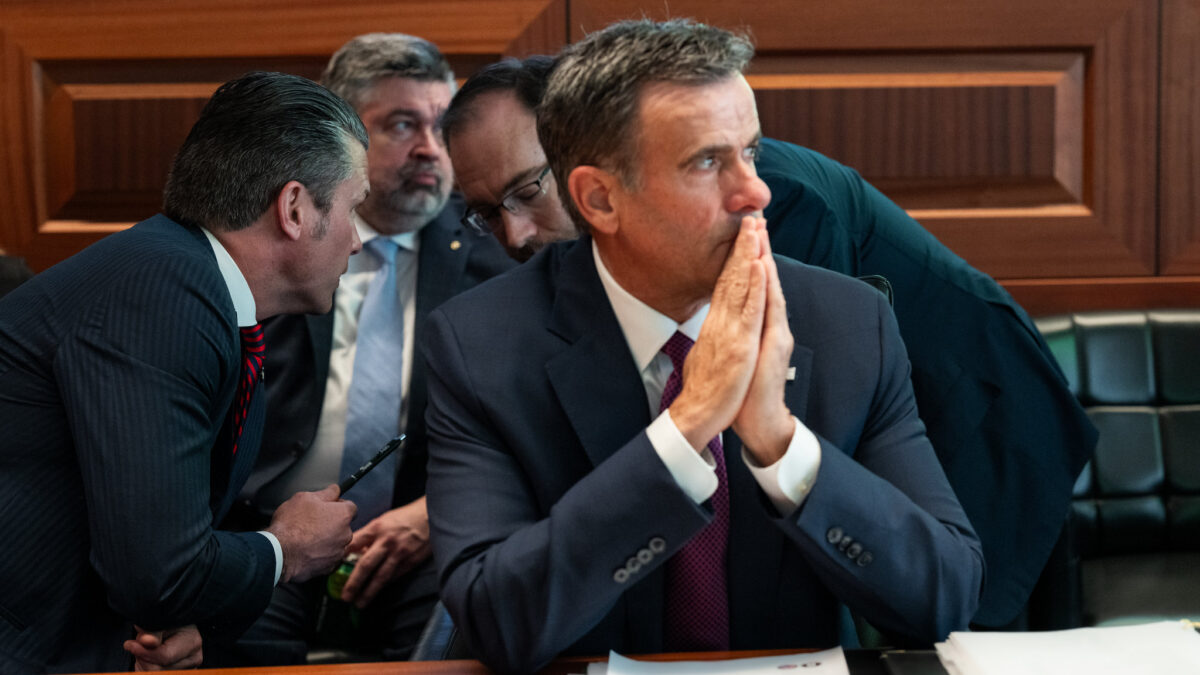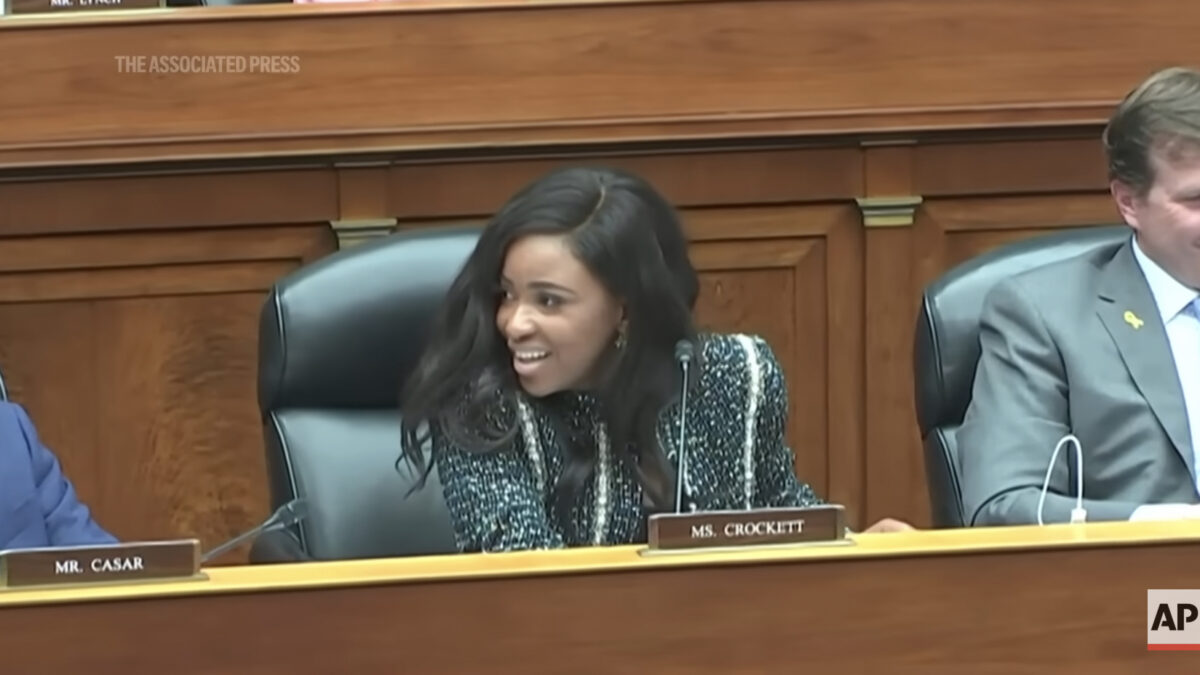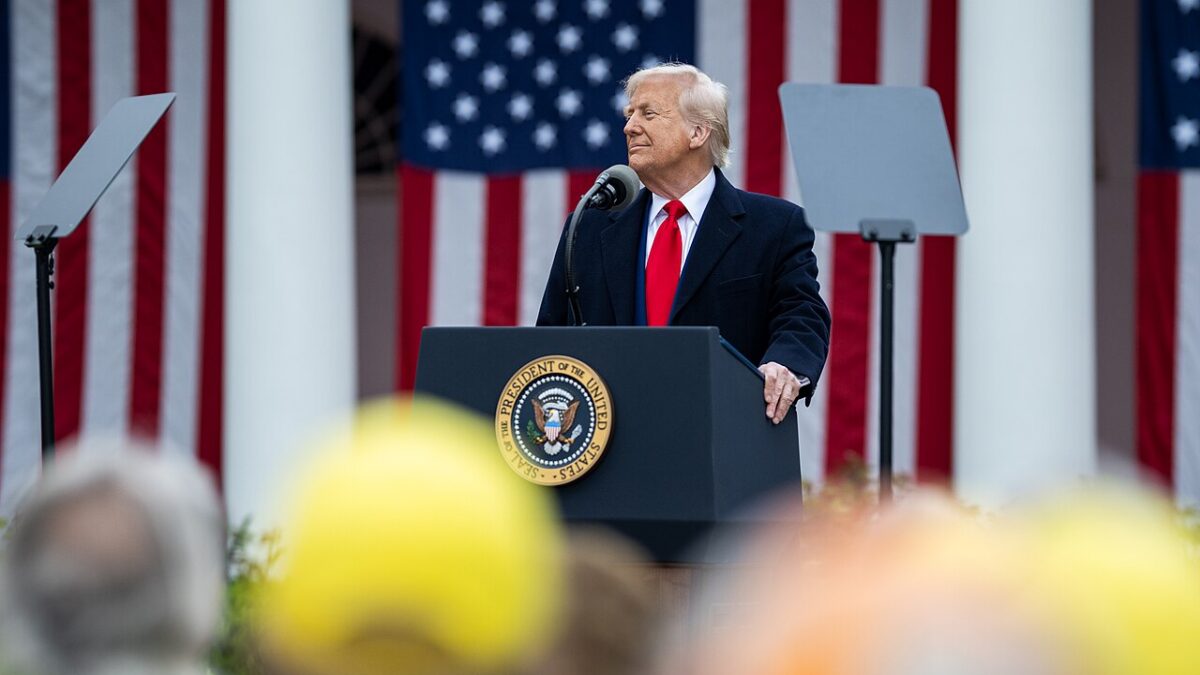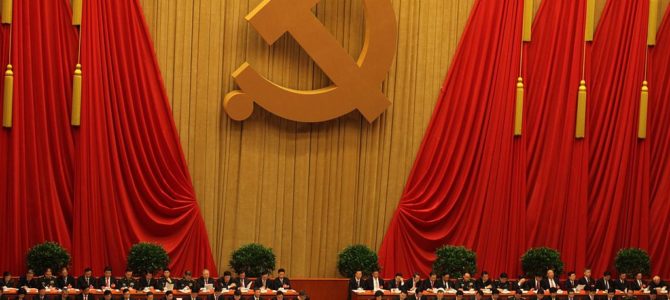
Perhaps the most momentous part of the Trump administration’s National Security Strategy (NSS) was its acknowledgment that the U.S. government’s historical premise “that support for China’s rise and for its integration into the post-war international order would liberalize China” was wrong. Recent events indicate that not only was the theory underlying all U.S.-China policy for nearly 50 years incorrect, but that perhaps the opposite is true: Support for China’s rise and for its integration into the post-war international order has actually illiberalized America.
Stated differently, there is a case to be made that since President Richard Nixon’s historic 1972 visit to China, the United States has become more like China than China has become like us. We may have been sowing the seeds of our own destruction.
The National Basketball Association (NBA) is just one of many prominent Western industries as diverse as automobiles, fashion, and lodging that have cowed to the Chinese Communist Party (CCP) line, and engaged in self-censorship out of a desire for the almighty dollar. While the NBA is a particularly deserving target of ire, given the fact its social justice warriors have shown themselves to be hypocritical sellouts, one would be hard-pressed to find any entity with substantial profits or funding tied to China willing to permit the voicing of views that might rankle the CCP.
Businesses Manipulated by America’s Enemy
“Stealth War: How China Took Over While America’s Elites Slept,” a new book by U.S. Air Force Brig. Gen. Robert Spalding (Ret.), confirms this assessment. Spalding served as the chief China strategist for the chairman of the Joint Chiefs of Staff, as senior U.S. Defense official and defense attaché to China in Beijing, and later in the Trump National Security Council (NSC), where he was the chief architect of the NSS’s framework for national competition.
According to Spalding, even organizations that would seem to have a vested interest in exposing China’s malign behavior remain mum. Spalding writes that upon his arrival at NSC:
I made it a personal mission to meet with many leading think tanks, nongovernmental organizations, and law, auditing, and public relations firms that dealt with China. I was eager to seek their help in exposing the Beijing government’s influencing operations and sanctioning of illegal behavior. Additionally, I hoped they would help me explore policy options to counter China’s economic malfeasance.
Time after time, I was rebuffed.
People at these organizations would talk with me, and many of them even said they agreed with my concerns, but they claimed they couldn’t help. Doing so, some of the more forthright people said, might anger their Chinese funders or business accounts. The list of organizations that refused to engage with me publicly in my official capacity was stunning. Top white-shoe New York law firms. Organizations with mandates to promote democracy, freedom, and human rights would refuse to support my mission.
…They were, in essence, being manipulated by a foreign power that is America’s greatest enemy.
The willingness of American organizations to remain silent about Chinese Communist tyranny can be seen against a correlative backdrop of our burgeoning cancel culture, the censorship of Big Tech, and general decline of devotion to First Amendment principles alongside the Long March of political correctness through our institutions.
China is not the cause of the general erosion of American fidelity to free speech, but it is a contributor and one of its chief beneficiaries. As China poses arguably the greatest threat of any foreign actor to our liberties of all, the corruption resulting from our commercial ties is particularly acute.[i]
Double Censorship: At Home and Abroad
While we censor ourselves on China’s behalf, China also censors even the seemingly most non-threatening of American imports. A recent report by The Hollywood Reporter (THR) indicates Chinese regulators inexplicably halted the release of a previously greenlighted Quentin Tarantino film, “Once Upon a Time in Hollywood,” in Chinese theaters.
According to THR sources, the unspoken reason was that: “Bruce Lee’s daughter, Shannon Lee, made a direct appeal to China’s National Film Administration, asking that it demand changes to her father’s portrayal. Friends and family of the Hollywood action star have criticized Tarantino for his portrayal of Lee, saying it doesn’t resemble the real-life man and is instead a caricature.”
That China would bar a movie on such a rationale is not surprising given it has banned Winnie the Pooh because the character’s likeness to President Xi Jinping has been used to mock him. To his credit, affirmed in a tweet by Secretary of State Mike Pompeo, Tarantino is reportedly refusing to recut the film to meet the demands of Chinese regulators, potentially risking millions in movie sales.
If You’re That Paranoid, Are You Really Powerful?
Stepping back, one has to wonder, to the extent Chinese authorities believe a less than sympathetic portrayal of a Chinese icon is intolerable, does the CCP’s cancel culture indicate strength, or weakness? What does it say if Chinese authorities believe even pusillanimous comments from foreign individuals, such as the response of the NBA to Houston Rockets General Manager Daryl Morey’s pro-Hong Kong freedom remarks, must meet ominous statements by CCP-controlled media threatening punitive action, such as that Commissioner Adam Silver “will receive retribution sooner or later?” If any deviation from the party line at home or abroad must be disappeared, condemned, or threatened with punishment, is Xi as omnipotent as perceived?
Tyrants tend to hold on to power for longer than their adversaries anticipate. But if a regime must rule with an iron fist, are its fundamentals strong? Does it not cause weakness when a regime cannot countenance competing views? A culture of conformity governed by fear, and an intelligence dictatorship, may be a strength, but could it turn to a weakness? Should we not take these realities into account and seek to exploit them?
There is a marked contrast between the posture of American private actors towards China, and that of the Trump administration, and an otherwise recalcitrant political establishment that increasingly shares its hawkishness. Several lesser-noticed developments in just the last week, when juxtaposed with the NBA kerfuffle, have brought this into stark relief.
The United States Has Begun to Respond
The Department of Justice’s efforts to thwart national security-threatening Chinese activity bore fruit as a Chinese national was sentenced for conspiring to illegally export military- and space-grade technology from the United States to China. The Securities and Exchange Commission filed a complaint against a number of Chinese individuals and associated entities alleging they engaged in a massive market manipulation scheme—affecting the prices of more than 3,900 securities—that resulted in millions of dollars in ill-gotten profits. The U.S. Attorney’s Office for the District of Massachusetts filed criminal charges against two of the traders involved.
These law enforcement actions come against news that both Congress and the Trump administration may be considering actions that would affect the access of Chinese companies to our capital markets, the lifeblood of the Chinese economy on which the CCP relies. The State Department revealed that it would require all Chinese foreign missions to “notify the Department of State in advance of official meetings with state officials, official meetings with local and municipal officials, official visits to educational institutions, and official visits to research institutions.” The purpose was to create a level of reciprocity, given the comparative inability of U.S. diplomats to meet with such Chinese counterparts.
Such actions represent a tiny snapshot of an accelerating whole-of-government approach to reverse the policies that have led to America’s aiding and enabling of China’s non-peaceful rise.
Is a Conscious Uncoupling the Best Course?
Today the West’s stifling of its own speech in the face of Red China, and Red China’s stifling of the speech of its own citizens, suggests that Xi and the CCP are strong. The longer civil society actors in the West remain wedded to Chinese profits and Chinese money, the stronger the CCP will grow, at our long-term expense.
If we desire to retain our liberties, we Americans, and all Westerners, have to ask ourselves some tough questions: Do we want to be active collaborators with a regime that ultimately seeks to dominate us? Is there any way to engage in commerce in areas of strategic import or societal influence without the CCP corroding us, while we strengthen it? Can one have a “win-win” relationship with a regime whose chief ambition is global hegemony, and that believes in engaging in unrestricted warfare to achieve it?
Or, is decoupling—among other things, restructuring the world economic architecture developed over the last 40 years, including ripping apart global supply chains—or at a minimum the credible threat to do so, the only ultimate option to cause fundamental change? President Trump suggested so in August 2019: “Our great American companies are hereby ordered to immediately start looking for an alternative to China…”
The NBA-China episode has highlighted these issues for Americans of all stripes to see. As the stakes get bigger and bigger for China, opportunities big and small are going to continue emerging for Americans to choose freedom or Communist tyranny. We must choose rightly.
[i] Consider that China brazenly threatens our freedom of commerce, navigation, communication and the life and limb of our servicemen and civilians, while posing a direct threat to our domestic freedoms – all while harboring expansionist ambitions that further imperil our liberties and those of our allies. Given its geographic and digital reach, economic and military might, the scope of its malign activities and deep-seated commitment to Communism, the case that China poses the greatest external threat to our liberties of all is strong.


